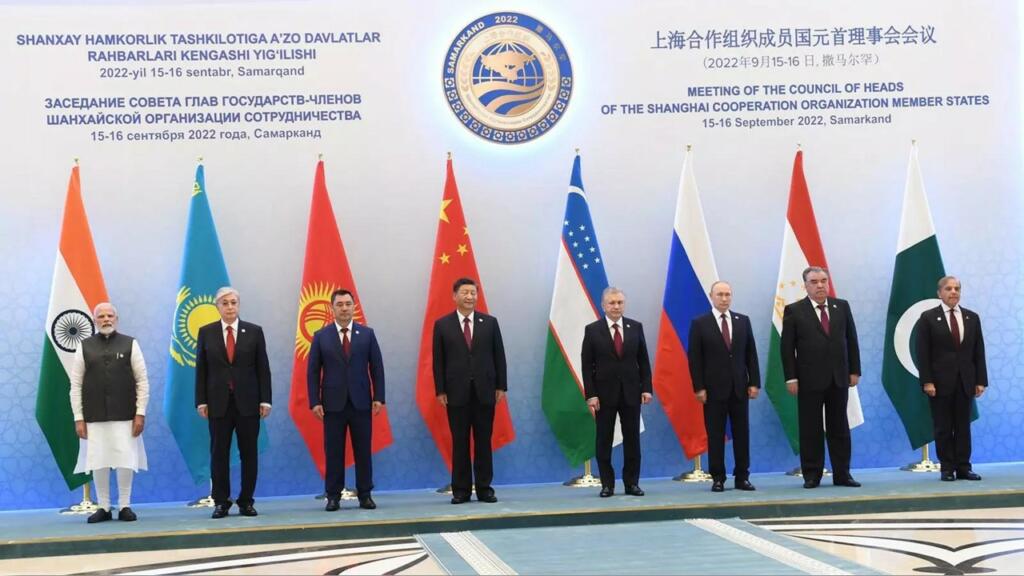Formed with a vision, the “Shanghai Five” succeeded the Shanghai Cooperation Organization (SCO) in 2001. But it proved reluctant when it came to expansion. The SCO’s first formal expansion took 14 years, when both India and Pakistan joined. While SCO was full of enthusiasm, it initially captured the attention of the entire world. However, as of today, it is critical to assess the challenges it faces.
Foreign Minister’s Meeting
As India holds the Shanghai Cooperation Organization (SCO) presidency for the year 2023, it has formally invited the foreign ministers of all the nations for a meeting to be held in Goa. The foreign ministers’ meeting will be held on May 4-5. As is obvious, invitations were sent to Bilawal Bhutto, Pakistan’s foreign minister, and Qin Gang, China’s foreign minister. According to the reports, so far, there has been no confirmation from Pakistan’s side.
Pakistan has not participated in the SCO Film Festival to be held later this month in Mumbai. India-Pakistan relations are suffering and unpredictable. On the one hand, Pakistan’s PM Shehbaz Sharif admitted in an interview that Pakistan has learned its lesson and wants serious talks with India; on the other hand, Billawal’s blabber at the UN is still a fresh wound.
However, struggling bilateral relations are not a matter of worry for Shanghai Cooperation Organization (SCO), as Pakistan’s absence will actually prove its stupidity. However, India-Pakistan relations are not the only challenges for SCO.
Also read: Time for Jaishankar to visit Moscow
SCO, its vision, and the west
SCO encompasses 60% of Eurasia, 23% of the world, 40% of the world population and 30% of the world’s GDP. SCO was formed to counter western influence in the region along with seeking economic, international security, and defence cooperation. Many Western academics initially saw it as an effort to counter NATO.
According to Brzezinski Theory, the country that dominates Central Asia dominates Eurasia, and whoever dominates Eurasia dominates the world. China and Russia have paid attention to that since the SCO was formed. The Shanghai Five actually opposed intervention in other countries on humanitarian grounds and for the protection of human rights.
Back in 2005, SCO requested that the US set a clear timetable for its evacuation from Uzbekistan and Kyrgyzstan. As a result of that, Uzbekistan requested that the US leave its K2 Airbase. Interestingly, the United States applied for observer status in 2005 but was denied by the organisation.
Apart from that, Turkey desired to weaken its accession to EU for SCO membership, which became a reality when Erdogan applied for membership in the group after the EU suspended accession talks. The West’s relations with Iran have also been torsion. After almost 7 years, Shanghai Cooperation Organization (SCO) is once again expanding itself with the entry of Iran.
As the UN has long been accused of being dominated by the West, many people look forward to SCO as an intergovernmental organisation that will deal with the UN’s shortcomings.
Also read: The rise of India’s clout: Azerbaijan conflict, Pope’s Committee and SCO
India, Shanghai Cooperation Organization (SCO) and security
India is undoubtedly a crucial member of the SCO. During the previous year’s summit in Samarkand, the declaration emphasised the fight against terrorism, and the issue of transit rights denial was also raised.
Later in October 2022, India held a Regional Anti-Terrorism Structure (RATS) meeting under the framework of Shanghai Cooperation Organization (SCO) and resolved to carry out joint measures to tackle terrorism in Afghanistan. The demand for transit rights will prove to be a masterstroke for India, as it will grant access to Central Asia through Pakistan without even asking it bilaterally.
Also read: ‘Champions’ of Free Market Economy get jackhammered by India at SCO
Challenges and the way ahead
There is almost a consensus in the world about the efficiency of Shanghai Cooperation Organization (SCO), but it is lagging behind as it faces some challenges. The interest-based collision among its members is one of the reasons for its backlog. India-Pakistan, India-China, and Pakistan-Russia are some of the bitter relations in the organisation. And, of course, China, the initial proponent of the SCO, is hard to believe. While nearly the entire organisation is anti-American, India takes a neutral stance on polarities.
According to the European Parliament’s researcher, the reason why SCO never achieved the anticipated regional cooperation is because of institutional weakness, a lack of common financial funds for joint projects, and, last but not least, conflicting national interests.
In order to overcome this, Shanghai Cooperation Organization (SCO) needs to devise a “common minimum program” that can bypass the conflicts. The Interbank Consortium, along with the intersection of SCO and BRICS, which is still an idea for the members, can solve its problem of a lack of common financial funds.
Shanghai Cooperation Organization (SCO) is the only organisation that, despite its internal differences, has somewhat sustained its relevance in the current world order. This demonstrates the value that each member places on the organization. And, given their conflict of interest, it appears to be the only way forward in recent times.
Support TFI:
Support us to strengthen the ‘Right’ ideology of cultural nationalism by purchasing the best quality garments from TFI-STORE.COM
